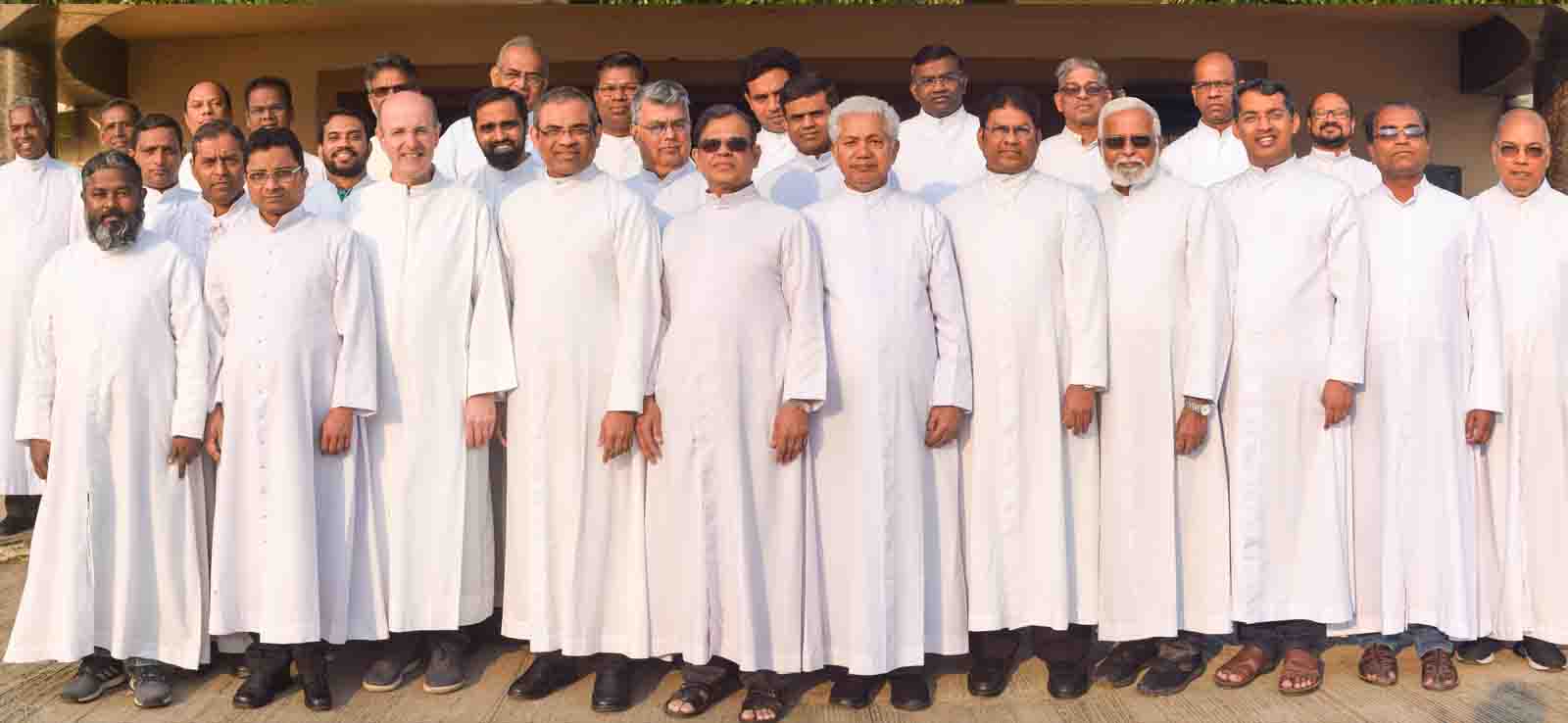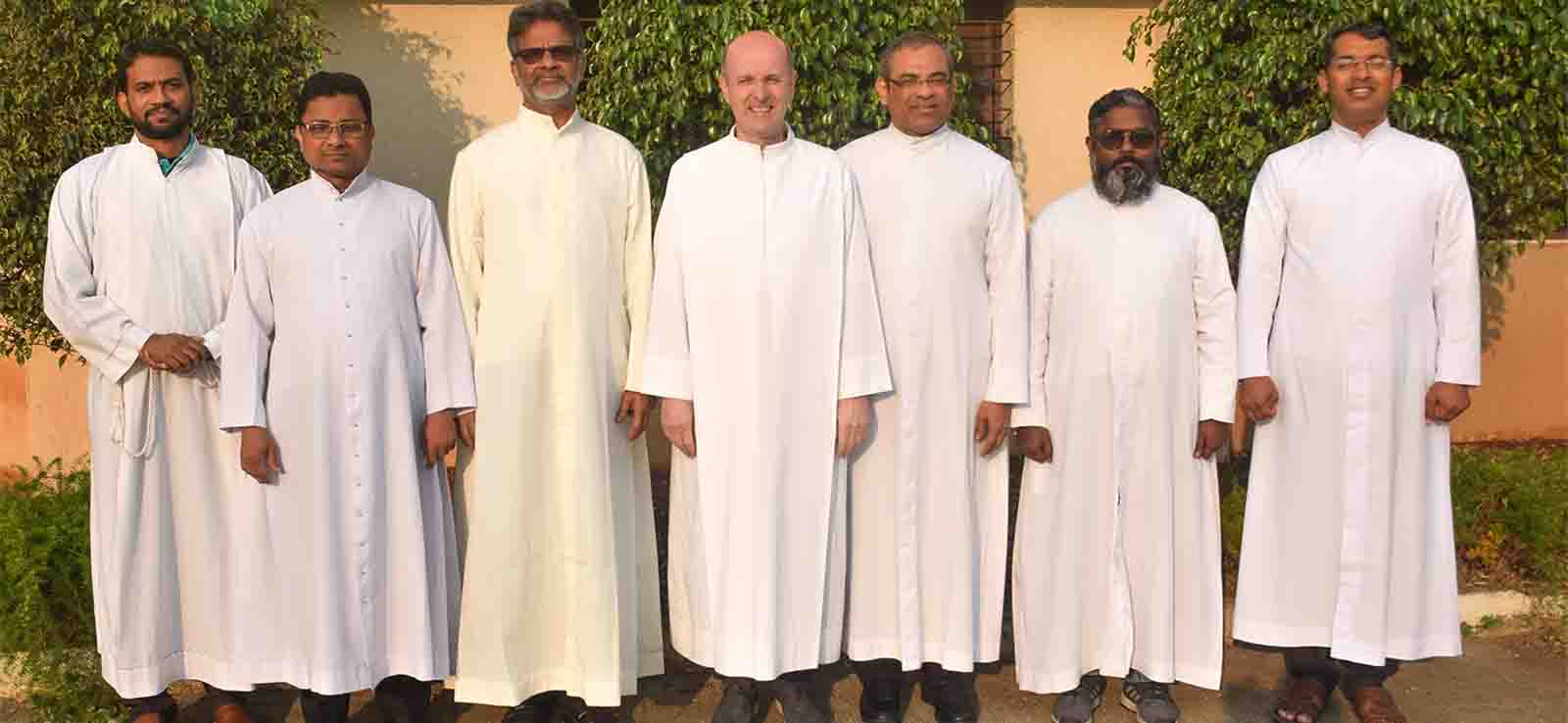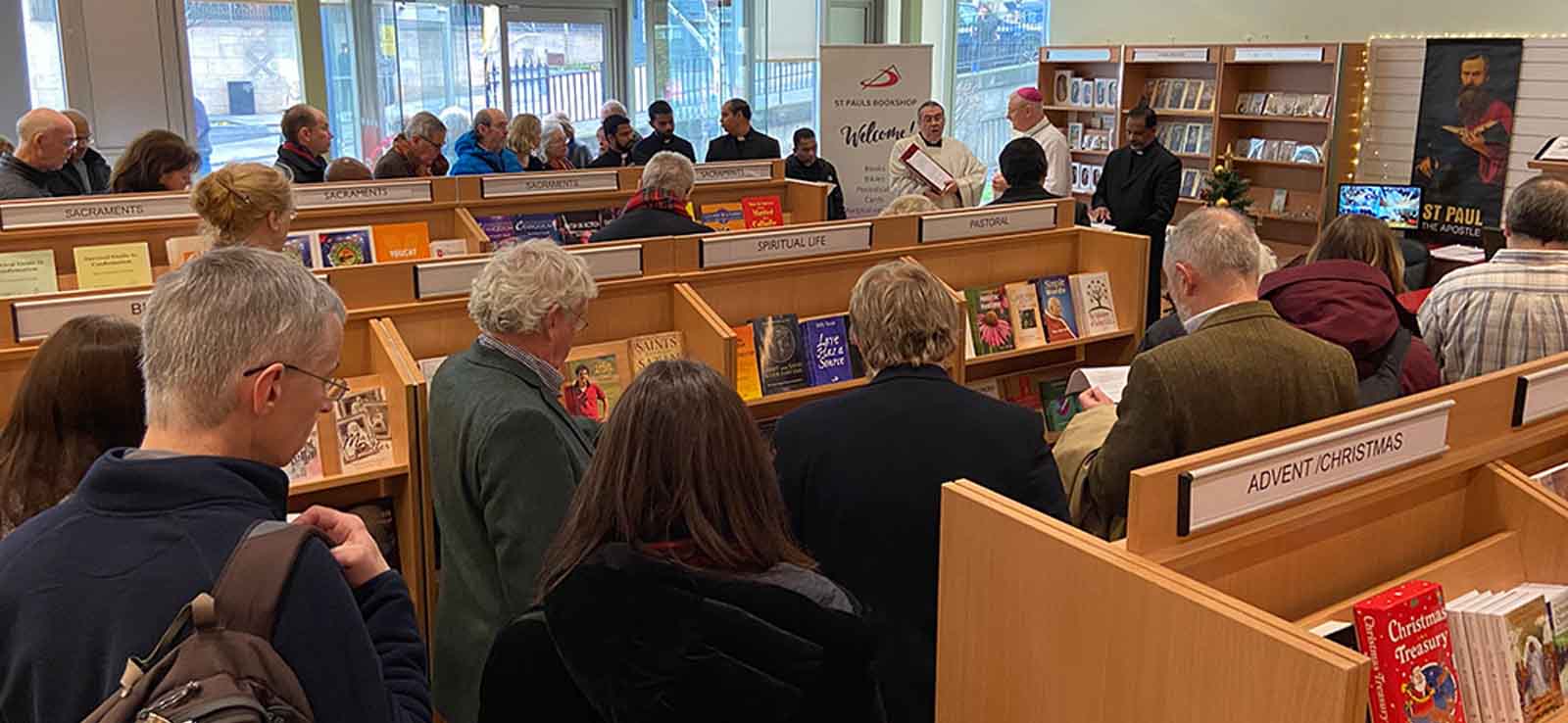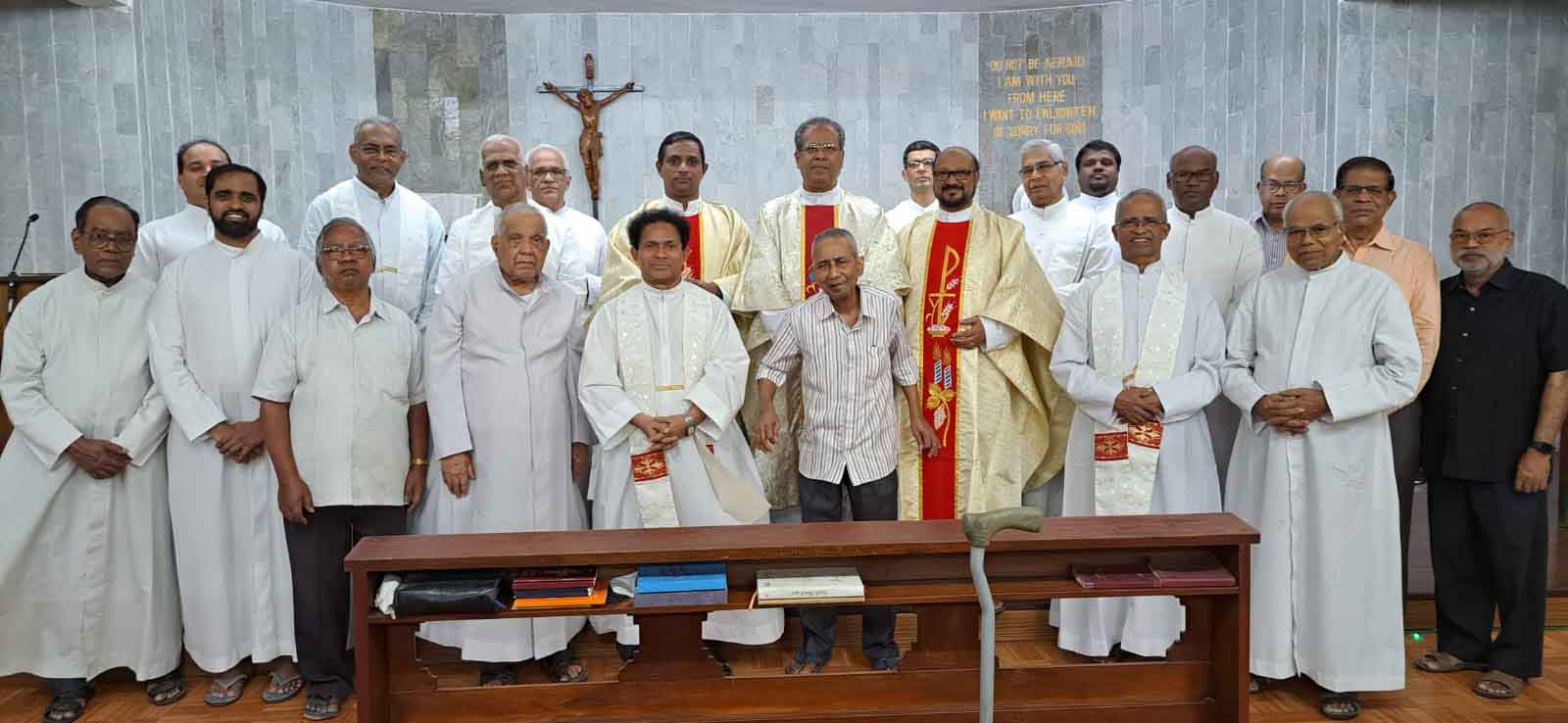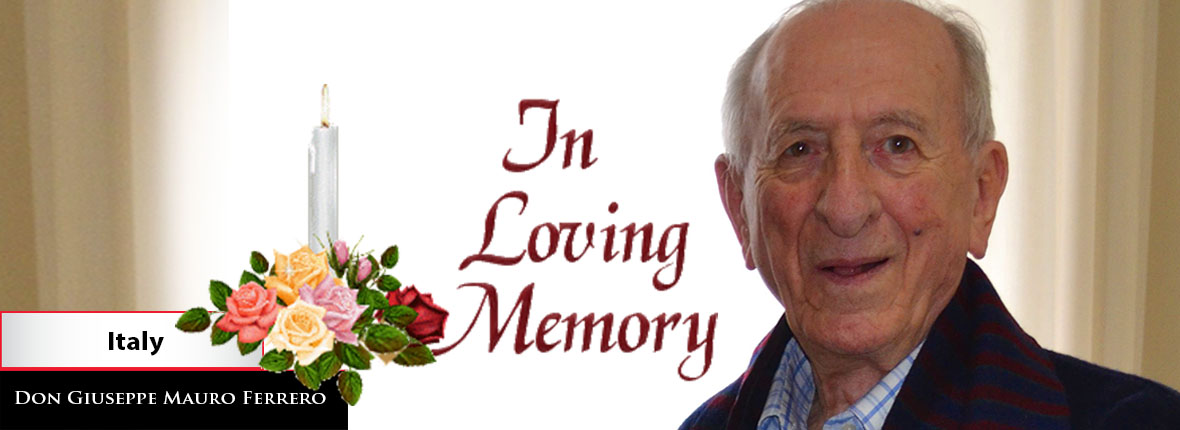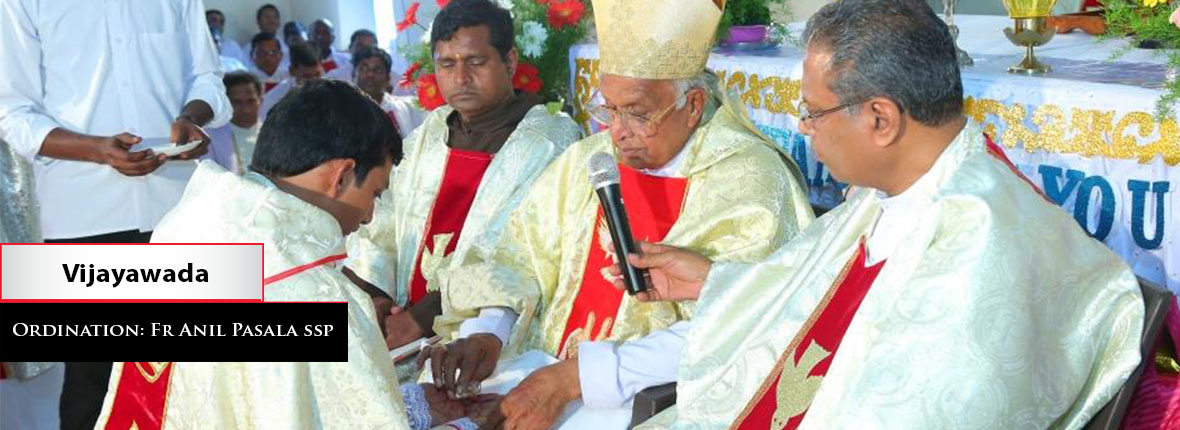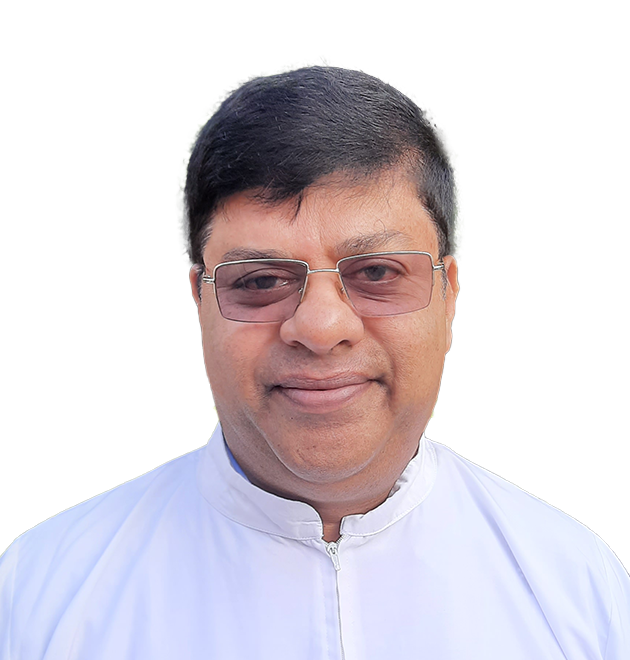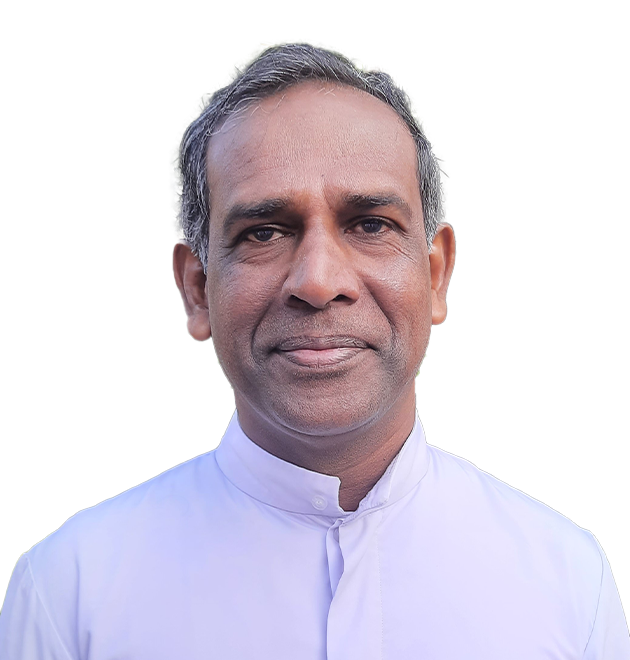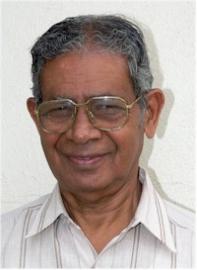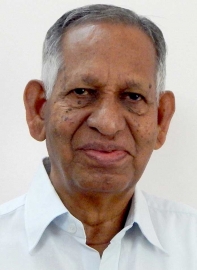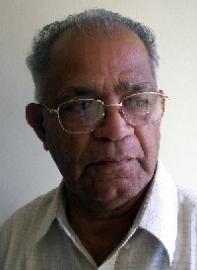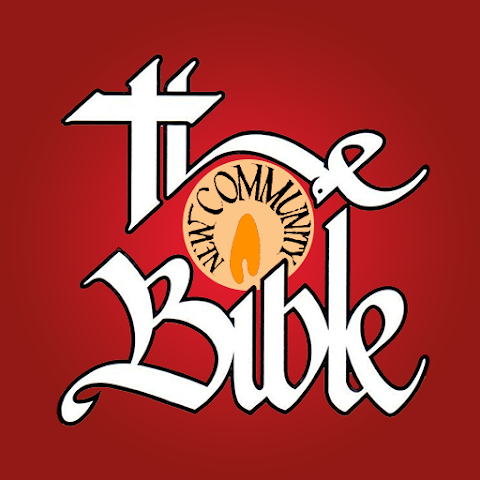THE PAULINE FORMATOR
THE PAULINE FORMATOR
The relationship between man and God is that of a relationship between a Teacher and a disciple. God plans and effects different stages in the formation of a person, such as his birth, his maturation and his openness to the Transcendent.
Formation of a candidate takes place in the context of a community and society (cfr CD, 98). Therefore, the community has to be formative in nature. The atmosphere of its human and spiritual life, its apostolic commitment and the joy and the brotherhood of the members who make it up—all these get across to candidates the basic values of their formation (cfr CD, 98.1).
A formator in the proper sense is the person who welcomes, guides, respects and co-operates in the integral growth of the young men in his care. He is the principal person in charge of the group, that is, he is directly responsible for the spiritual, apostolic, human and intellectual formation of the students in formation. He creates a suitable atmosphere and facilitates the discernment and the growth of Vocation. He educates not only with words but also by his very way of life.
In the Society of St Paul the person directly responsible for the formation is called Master. The Founder has preferred this title, because, for him, the formator is more than a guide, teacher, rector or a director. The master is someone who is “everything” to everyone.
Profile of a Pauline Formator According to Blessed James Alberione
According to our Founder Blessed Alberione, the master of the group takes the place of Jesus Master, the Way, the Truth and the Life. He has given the following explanation for choosing the title “master”: “Teachers are those who give lectures in the school. It is not enough to be a teacher, but one has to be a master. The master is the Way, the Truth and the Life. If the master is not the personification of the Way, the Truth and the Life for the students, he will merely be a teacher – a teacher who will be a “sounding cymbal”.
The Master Is the Way:
As Jesus preceded the apostles by example, the master shall precede the candidates in piety, humility, charity and obedience. The formator is the way for the candidates through his word and examples. Just as Jesus Christ is the Way towards the Father, the master shall be for the formees the Way to Jesus Christ. Jesus taught Christian and religious perfection to his disciples, so shall a Pauline master do to his formees.
The Master Is the Truth:
Jesus the Truth signifies that he is the embodiment of what he teaches. He communicates to us the truth about his Father which he possessed fully. Jesus spoke of himself as Truth and taught his disciples the sublime truths in simple words and through images and parables. So shall be the master to the candidates—the one who brings Jesus, the Divine Master, in simple words and adapting to their condition.
The Master Is the Life:
Jesus offered himself as life because he is life: “I am the vine, you are the branches” (Jn 15:5), “He who eats my flesh and drinks my blood has eternal life” (Jn 6:54). The master ought to possess much grace and holiness and then communicate them to his disciples.
The master takes the place of Jesus Christ and gives him to the formees. However, he is not a mere channel which only brings water but like a mountain lake that contains the divine treasures to the brim and overflows to souls. The master must continually deny himself in order to make himself a servant to the needs of his formees. He has to protect them from sin and be their constant companion (cfr CISP, pp. 784-785).
Jesus formed his apostles by communicating to them the heavenly doctrine, integrating it with the example of a holy life and praying for them incessantly. The conduct and style of Jesus must be the conduct and style of all masters. Their instructions should be validated with exemplary behaviour and constant prayer (cfr CISP, p. 778).
Human growth requires fraternal correction. This is an art that the master should learn, and how and when to apply it. It is a mistake to be so strict with the youth that they are afraid to open themselves. Instead, help them to open themselves in an atmosphere of trust and confidence and they will be open to corrections. Corrections should always be done in view of the good of the other and be an invitation to practise truth and charity. All these are to be done with great wisdom and gentleness (cfr SdM, p. 41).
Our Founder considers meditation on Jesus Master the most important study for masters. From constant meditation on Jesus Master one learns the renunciations and the generosity demanded from his followers, the maternal tenderness and encouragement of Jesus, the divine and the only method he used and his teachings and the reward he promised. All these are recorded in the gospel (cfr CISP, p. 254).
The master should feel the gravity of his responsibility before God, before the Congregation and before the formees. He takes care of the spiritual, intellectual, apostolic, human and religious formation. He considers himself as Jesus among the apostles.
The master remains with the group in imitation of Jesus Master. He prays with them, celebrates Mass with them, plays with them and eats with them. He accompanies them always particularly during their most difficult moments. He helps their intellectual growth and emotional maturity. He is their father and mother, friend and helper. The master represents the eye of God as it is described in psalm 138:1-12 (cfr UPS II, 101).
The master is the hinge in the all-round and integral formation of the candidates. He is the central figure in coordinating the life of study, apostolate, religious and spiritual formation. He has to listen to and interact with other persons such as the departmental heads in the apostolate, teachers, superior, etc. However, he has the major and decisive role in the life of the formees.
According to our Founder, the master should be patient and prudent and possess a heart overflowing with supernatural affection for his spiritual children. He must be enthusiastic about his own vocation and teach the students by his example (cfr CISP, 750).
The master should be aware of the reality of diversity in character, temperaments, gifts and talents and thus avoid the temptation of “standardization”. The Founder says: “There are persons who want to form their disciples as statues, all of them in the same shape! The individual has to enjoy certain freedom. Everyone is unique in his character, temperaments and assimilation of values. Certainly, the master should give the general norms and principals but they be applied according to the maturity of each one” (ES, 150-151).
The Founder wisely cautions of two dangers they are exposed to: to form others in one's own image and to seek personal glory in the work of formation. "The master must lead the youth to love the Lord, not win them for himself, seeking from them human esteem and vain and dangerous affection" (CISP, 7).
In this line of thought the Founder goes a step further: "The educator must little by little, make himself useless: For self-discipline, a religious has his conscience as his guide. Besides, a religious who always needs the supervision of a superior is not formed at all" (UPS I, 252).
Jesus is the perfect reflection of his Father who is invisible for us. Jesus, through his communion with Him, makes Him visible to us. Philip told Jesus: ‘Lord, show us the Father and that is enough for us.’ And Jesus said to him: ‘I was with you so long, and yet, you have not known me? He who has seen me has seen the Father also.’ Why have you said: show me the Father? Believe me, I am in the Father and the Father is in me’ (Jn 14:8-10). Similarly, the candidates who see the master should see Jesus Christ, the Divine Master (cfr OSWF, pp. 36-39).
Mission of Formators:
The mission of formators essentially is to facilitate growth, i.e., transformation of an individual into a genuinely human, Christian, religious and consecrated person. This is done specifically by providing knowledge, helping change of attitudes, developing skills, clarifying and deepening motivation, supplying necessary resources, freeing persons from psychological blocks, etc.
The success of formation depends greatly on the qualities of the master. Besides human and religious qualities the formators should have adequate training in our apostolate and spirituality and due intellectual and psychological preparation. That is why the formation of formators is a major factor in successful formation (cfr PC XVI, p.16). He should be well-versed in the Charism and the history of the congregation; be at home with the thought of the Founder and the successive developments brought out by the General Chapters and the actual directives of the Congregation.
























